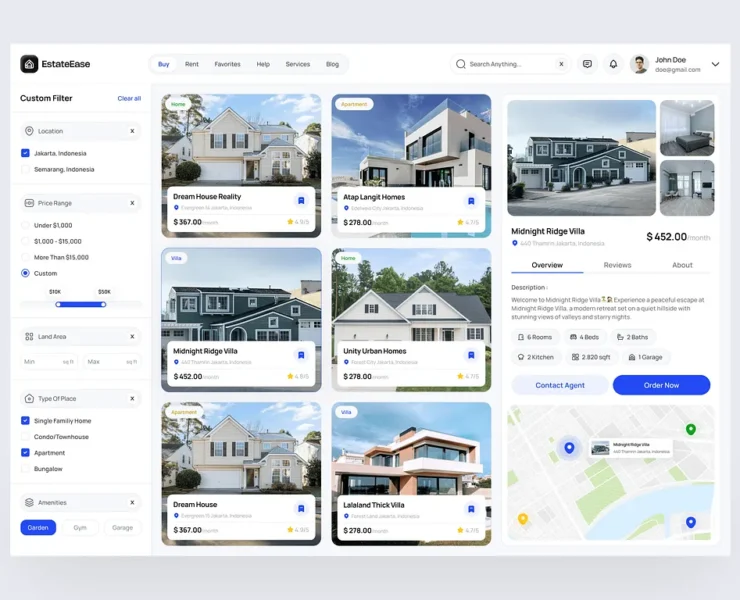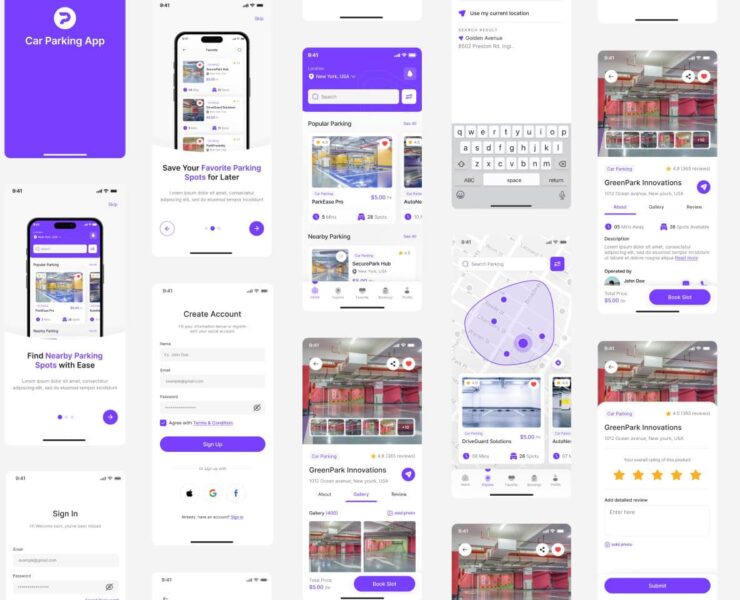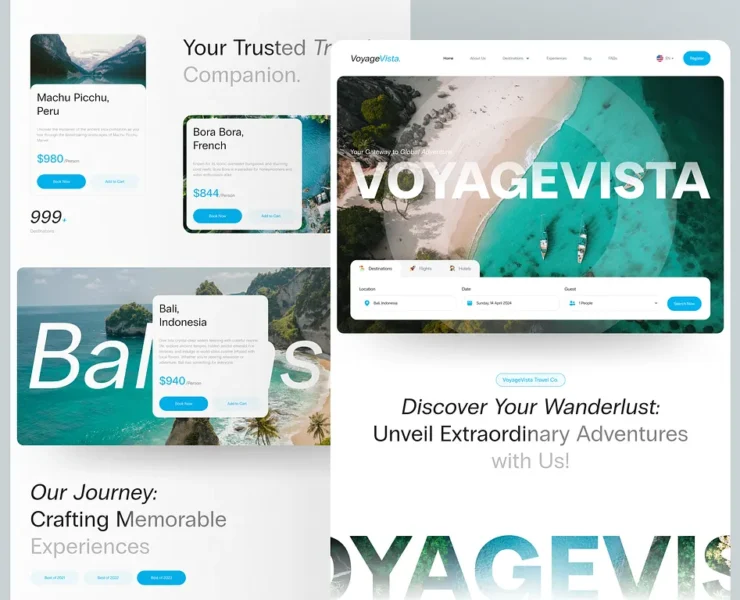What is a Marketplace? Everything You Need to Know
Marketplaces are everywhere. You use them, you buy from them, you sell on them—whether you realize it or not. But what exactly is a marketplace? How do they work? And why have they become one of the most powerful business models of the digital age?
In this guide, we’ll break down everything you need to know about marketplaces, from famous examples to different types and why they’re so hard to build yet so rewarding.
What Exactly is a Marketplace?
A marketplace is an online platform that connects buyers and sellers and facilitates transactions between them. Unlike traditional eCommerce stores that sell their own products, marketplaces don’t own inventory. Instead, they provide the infrastructure for third-party sellers to offer their goods or services to buyers.
Think of a marketplace as a digital middleman—it doesn’t own the products, but it makes the transaction possible.
Famous Marketplaces You Use Every Day
Some of the biggest companies in the world operate as marketplaces. Here are some names you definitely recognize:
- Amazon (Third-Party Sellers Segment) – While Amazon sells its own products, a huge portion of its revenue comes from third-party sellers listing their items.
- eBay – The OG of online marketplaces, eBay allows people to buy and sell almost anything through auctions or direct sales.
- Airbnb – Connects homeowners with travelers looking for short-term stays.
- Uber – Links drivers with passengers who need a ride.
- Etsy – A niche marketplace for handmade and vintage goods.
- Fiverr / Upwork – Platforms where freelancers offer their services to businesses and individuals.
- Facebook Marketplace – A peer-to-peer marketplace for buying and selling used goods locally.
These platforms don’t produce goods or services themselves. Instead, they create value by facilitating transactions and providing trust between buyers and sellers.
Types of Marketplaces
Not all marketplaces are the same. Let’s break them down by category:
1. Product Marketplaces (Physical & Digital Goods)
These platforms allow third-party sellers to list and sell their products to buyers.
Examples:
- Amazon, eBay, Walmart Marketplace (General goods)
- Etsy (Handmade & vintage items)
- Envato, ThemeForest (Digital products like website themes and templates)
2. Service Marketplaces (Freelancers & On-Demand Services)
Instead of physical products, these marketplaces connect buyers with people offering services.
Examples:
- Uber, Lyft (Ride-sharing)
- Fiverr, Upwork (Freelance services)
- TaskRabbit (Local handyman services)
- Turo (Peer-to-peer car rentals)
3. Rental & Hospitality Marketplaces
These platforms allow people to rent assets or spaces instead of buying.
Examples:
- Airbnb (Short-term rentals)
- Booking.com (Hotels & accommodations)
- Turo (Car rentals)
4. B2B Marketplaces (Business-to-Business Transactions)
Instead of individuals, these platforms cater to businesses that sell to other businesses.
Examples:
- Alibaba (Bulk product purchasing)
- Faire (Wholesale for boutique retailers)
- Upwork Enterprise (Freelancing for corporations)
5. Peer-to-Peer (P2P) Marketplaces
These marketplaces allow direct transactions between users, often for second-hand goods.
Examples:
- Facebook Marketplace (General used goods)
- Poshmark (Used fashion)
- StockX (Sneaker reselling)
How Marketplaces Make Money
Marketplaces are lucrative because they scale without inventory costs. Here are common ways they generate revenue:
- Transaction Fees – Taking a percentage of every sale (e.g., Airbnb, Uber, Fiverr).
- Listing Fees – Charging sellers to list their products or services (e.g., eBay, Etsy).
- Subscription Fees – Offering premium features for sellers or buyers (e.g., LinkedIn, Amazon Prime for Sellers).
- Advertising & Sponsored Listings – Charging sellers to promote their products (e.g., Amazon Sponsored Products, Etsy Ads).
Why Marketplaces Are Hard to Build (But Worth It)
While marketplaces sound like a dream business model, they are notoriously hard to start and scale. Here’s why:
1. The Chicken-and-Egg Problem
A marketplace needs both buyers and sellers to function. But how do you attract one without the other? Sellers won’t join if there are no buyers, and buyers won’t come if there’s nothing to buy.
2. Trust and Security
Marketplaces require trust. Buyers need to trust sellers, and sellers need to trust the platform. That’s why platforms like Airbnb, Uber, and Fiverr invest heavily in reviews, dispute resolution, and fraud prevention.
3. Competition is Fierce
Since marketplaces are so profitable when scaled, everyone wants a piece of the action. That means intense competition from well-funded startups and giants like Amazon, Facebook, and Google.
4. Scaling Challenges
Growing a marketplace isn’t just about adding more users—it’s about balancing supply and demand. Too many sellers and not enough buyers? Sellers leave. Too many buyers and not enough sellers? Buyers leave.
The Future of Marketplaces
Marketplaces continue to evolve, and new trends are shaping their future:
- AI-Powered Marketplaces – Smarter algorithms for matching buyers and sellers.
- Blockchain & Decentralized Marketplaces – Reducing fees and improving trust (e.g., OpenSea for NFTs).
- Niche Marketplaces – Hyper-targeted platforms that serve specific communities (e.g., Goat for sneakers, Reverb for musical instruments).
Should You Build a Marketplace?
If you’re thinking about launching your own marketplace, ask yourself:
✅ Do you have a unique angle or niche that isn’t dominated by giants?
✅ Can you solve the chicken-and-egg problem creatively?
✅ Do you understand how to build trust between users?
✅ Are you prepared for years of iterating, growth hacking, and problem-solving?
Building a marketplace is one of the hardest things to do in tech—but if you get it right, it’s also one of the most scalable, defensible, and valuable business models out there.
Final Thoughts
Marketplaces have changed the way we buy, sell, and exchange goods and services. From Amazon to Airbnb, they’ve reshaped entire industries. But behind every success story is a founder who fought through the toughest challenges to make it work.
Now, the real question is—are you ready to build one?




